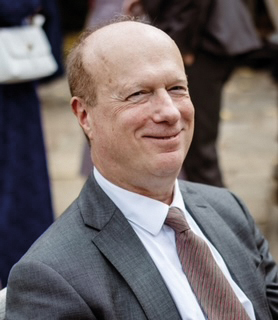
Richard Orrell died unexpectedly on 26th May 2024, while travelling in South Korea. He was 64 years old and had worked for more than 25 years as consultant neurologist at the Royal Free Hospital, the National Hospital for Neurology and Neurosurgery, and Queen Elizabeth II Hospital, Welwyn Garden City, UK. He was Associate Professor of the UCL Queen Square Institute of Neurology and President of the Clinical Neurosciences Section of the Royal Society of Medicine.
Richard grew up in Worsley, west of Manchester. At school, he excelled in all areas, including sports and music, playing the piano and clarinet to a high standard. His academic prowess was such that he jumped a year in primary school and then again in secondary school, resulting in him starting medical school at Manchester University a few days after his seventeenth birthday. On completing his medical degree, and a degree in Physiology, Richard gained experience in many physicianly specialties and in General Practice and Paediatrics.
Settling on a career in Neurology, he migrated to London and began his MD research work at Charing Cross Hospital, on the genetics of motor neurone disease, focusing on superoxide dismutase mutations. A lifelong interest in MND was sparked and Richard continued to research in this area, with an emphasis on neurogenetics and clinical trials. He wrote well over 100 research papers, review articles and book chapters. Richard’s MND research paralleled his commitment to patient care. He was successful in marshalling the resources of a general hospital to this end, including collaborating with respiratory and gastroenterological teams, nutritionists and therapists.
Richard’s skill in neuromuscular diseases extended beyond contributions to MND research and care. He spent a year as a fellow in Rochester, New York, as foundation for an enduring concern for adult patients with muscular dystrophies. He also co-led the Royal Free peripheral nerve service, performing nerve and muscle biopsies on his patients, and conducting a neurophysiology clinic in Hertfordshire. An insightful researcher, Richard was a fluent scientific writer and an authoritative speaker and teacher. Within and beyond the neuromuscular diseases, he provided expert clinical opinion – reliable and clear-sighted.
Richard had many interests outside Medicine. He took advantage of living in central London, going to the theatre, ballet and opera, and visiting art galleries, particularly to view modern art. Perhaps reflecting his professional inquiries into genetics, he was fascinated by his own family history and the genealogy of the Orrell family name. Richard was gregarious, with a circle of close friends and a loving family, who all benefitted from the same good nature, generosity and endearing character as was evident at work. He was also an intrepid voyager to exotic locations and it is poignant that his death occurred so far from home. His extensive travels may have been a factor leading to him recently becoming a member of the Reform Club, emulating the protagonist of “Around the World in Eighty Days.”
At the funeral service, the priest likened the sudden loss of Richard to the felling of a tree by night. This metaphor holds, in terms of the gap in the neurological landscape, and in Richard’s circle of family and friends, left by his absence. But it also speaks of the shelter and nourishment provided by a tree’s branches and roots, comparable to Richard’s kindness and expertise, experienced by patients, students and colleagues alike. Thank you, Richard.
